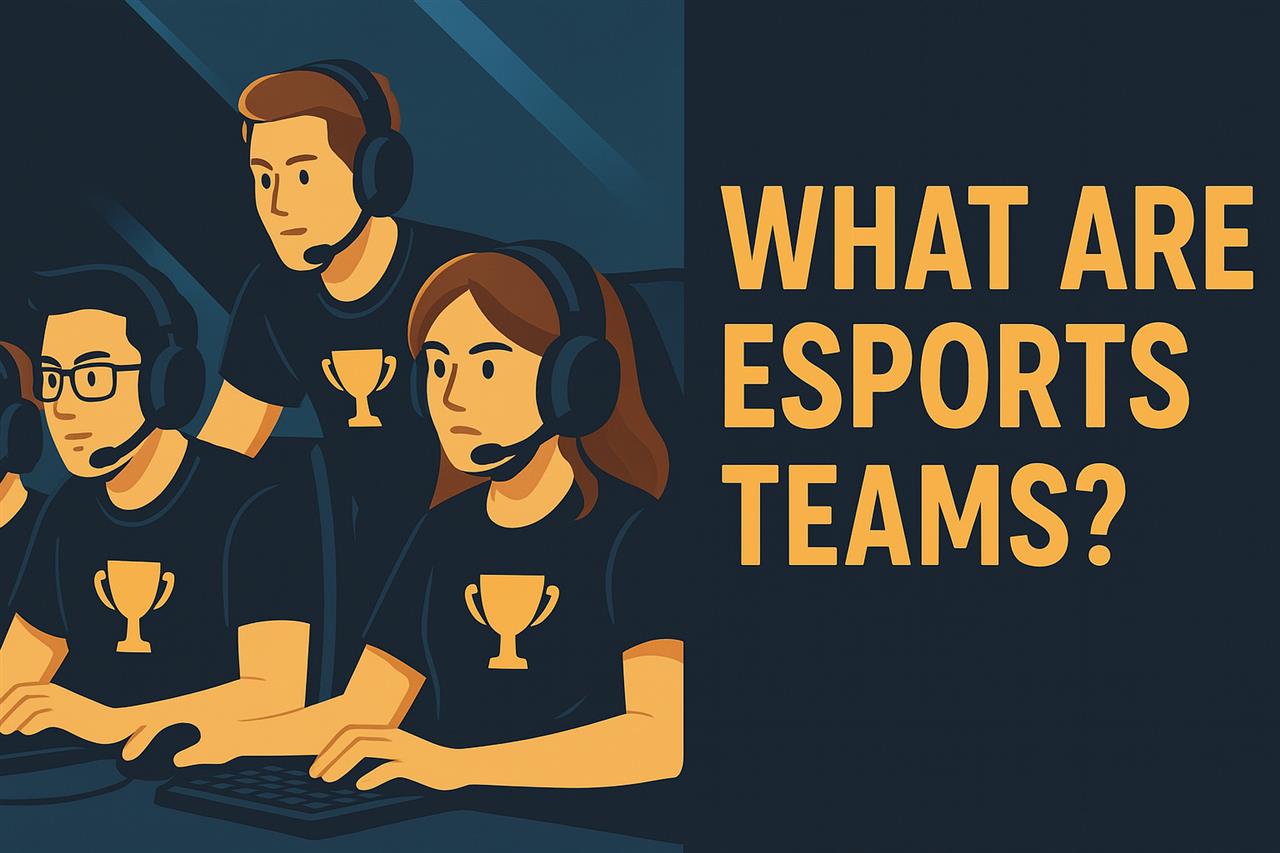What are esports teams?

In recent years, competitive gaming has transformed from a niche interest into a global phenomenon. At the heart of this evolution are esports teams - organized groups of professional players who compete in video game tournaments across the world. These teams function much like traditional sports teams, complete with coaching staff, analysts, sponsors, and dedicated fanbases.
The Structure of an Esports Team
Esports teams vary in size and organization depending on the games they focus on and the scope of their operations. However, certain core components are common across most professional teams.
Players
The players are the centerpiece of any esports team. They are divided by roles depending on the game being played. For instance, a League of Legends team typically includes five players, each with a designated position such as top lane, jungle, or support.
Coaching Staff
Behind every successful team is a dedicated coaching staff. Coaches help players strategize, review gameplay, and prepare for opponents. Larger teams also employ analysts who break down in-game statistics to refine tactics and match strategies.
Management and Support
Beyond gameplay, esports teams require strong management to coordinate contracts, promotions, and logistics. Teams also often include health professionals and mental coaches to keep players in peak form both physically and mentally.
Popular Esports Teams Around the World
Some esports teams have ascended to legendary status in the gaming community. These teams compete at the highest levels, earning millions in prize money and representing industries that rival traditional sports franchises.
Team Liquid
Founded in 2000, Team Liquid is one of the oldest and most respected esports organizations. With rosters in games like Dota 2, CS:GO, and League of Legends, they have consistently been at the top of various leaderboards.
Fnatic
Based in London, Fnatic is known for its dominance in multiple games, particularly in the European League of Legends scene. Their players are recognized not only for their skill but also for their branding and media presence.
Cloud9
Headquartered in Los Angeles, Cloud9 is a top-tier North American team that competes in games such as Valorant, League of Legends, and Hearthstone. They have gained fame for innovative strategies and a loyal fanbase.
Esports Teams and the Business Landscape
Esports teams are more than just collections of gamers. They are multi-million dollar enterprises with sponsorships, investor backing, and international reach. Companies like Adidas, BMW, and Red Bull have all entered the esports space through partnerships with teams.
Revenue Streams
Teams generate revenue through various avenues, including prize winnings, streaming content, brand deals, and merchandise sales. Successful organizations also operate esports academies and training facilities, providing a pipeline for new talent.
Franchise Leagues
Much like traditional sports leagues, esports has adopted a franchise model in games like Overwatch and Call of Duty. Teams buy into these leagues for multi-million dollar fees, securing permanent spots and regional branding opportunities.
The Future of Esports Teams
As technology and the gaming industry continue to evolve, so too will esports teams. Advances in virtual reality, AI coaching tools, and mobile gaming expansion suggest that the esports scene will only grow more diverse and competitive.
Global Expansion
Esports is expanding rapidly into regions like Southeast Asia, Latin America, and the Middle East. New teams are emerging worldwide, bringing unique styles and fresh talent to the global stage.
Youth Development
Many professional teams are starting to focus on youth development programs, offering training and mentorship to the next generation of players. These initiatives are helping to stabilize the long-term future of the industry.
Conclusion
Esports teams are at the forefront of a booming digital revolution in entertainment and competition. With the industry's explosive growth, these teams are not only changing the way games are played, but also how people interact with digital media on a global scale. Whether you're a casual fan or an aspiring pro, the world of esports teams offers endless excitement and opportunity.